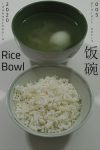
3:23 a.m.
I think I finally understand.
For this last entry, I wish that this resolution of mine lasts. I know, however, that it is impossible for anyone at any point of their lives to find the most impeccable answers to the things that torment them mentally. Perfection in thought is unattainable, so I've long dashed the pursuit of mine to construct the most "perfect of perfect" resolutions, and only for ones that satisfy me for as long as it could last. Because inherently, the reason "why" people suffer is never going to be straight forward. I can and only can assign my own resolute to it based on how I've lived my life, and in this case, I base it off my few previous days in pursuit of it.
Even if this is half-baked, it is enough for me, for now.
I've always thought of suffering and elation as opposites. Both cannot exist without each other's presence. One offers us reprieve while one deprives us of it. Then it would be that one exists solely to cancel out the other, right? This surely makes them opposites.
No. They are equivalent.
Neither your happiness nor suffering is the same as mine. And thats because it can never be. Our experiences in life can never come close to being exactly identical, so it would only be fair to say that the way both are defined is different between people. I will never be able to truly understand another person's highest peak of elation and their lowest lows of suffering. However, this also makes them equivalent, in the sense that they exist equally for all of us - they aren't derived directly from the "things" itself, and since their definitions fluctuate from person to person, it would mean that both suffering and elation are derived from the people, not the environment.
The biggest liberty in thought is our ability to assign what troubles us, and what makes life worth living for.
For humans to exist in this world, and to possess the ability to feel elation, we must also be able to suffer. We exchange elation or suffering, exchange suffering for elation. And when we feel troubled, we feel as if life has given us an unfair trade. Unfairly life has assigned more suffering for a person than another, who lives life in a certain peace. It simply isn't a fair transaction. At the same time life provides us with the caveat that the value or exchange rate of this transaction isn't fixed for everyone. We get to determine the worth of elation of and suffering, which life cannot dictate on us.
At the same time, life makes a promise. For suffering to exist, elation too must as well. And if we can find it in our lives, and truthfully value both of them, we can strike a balance, not for everyone, but for ourselves. I suffer for know, but I have faith in the knowledge that I suffer because I inherently have the capability to feel elation as well. And as long as I can be truthful to how I value it, I may not need to have these conflicts with the presence of suffering in my life for long.
After so long, I've finally found a way to accept suffering's existence. It is integral as a part of living, and by acceptance, perhaps I could live with a clearer perception of life.


